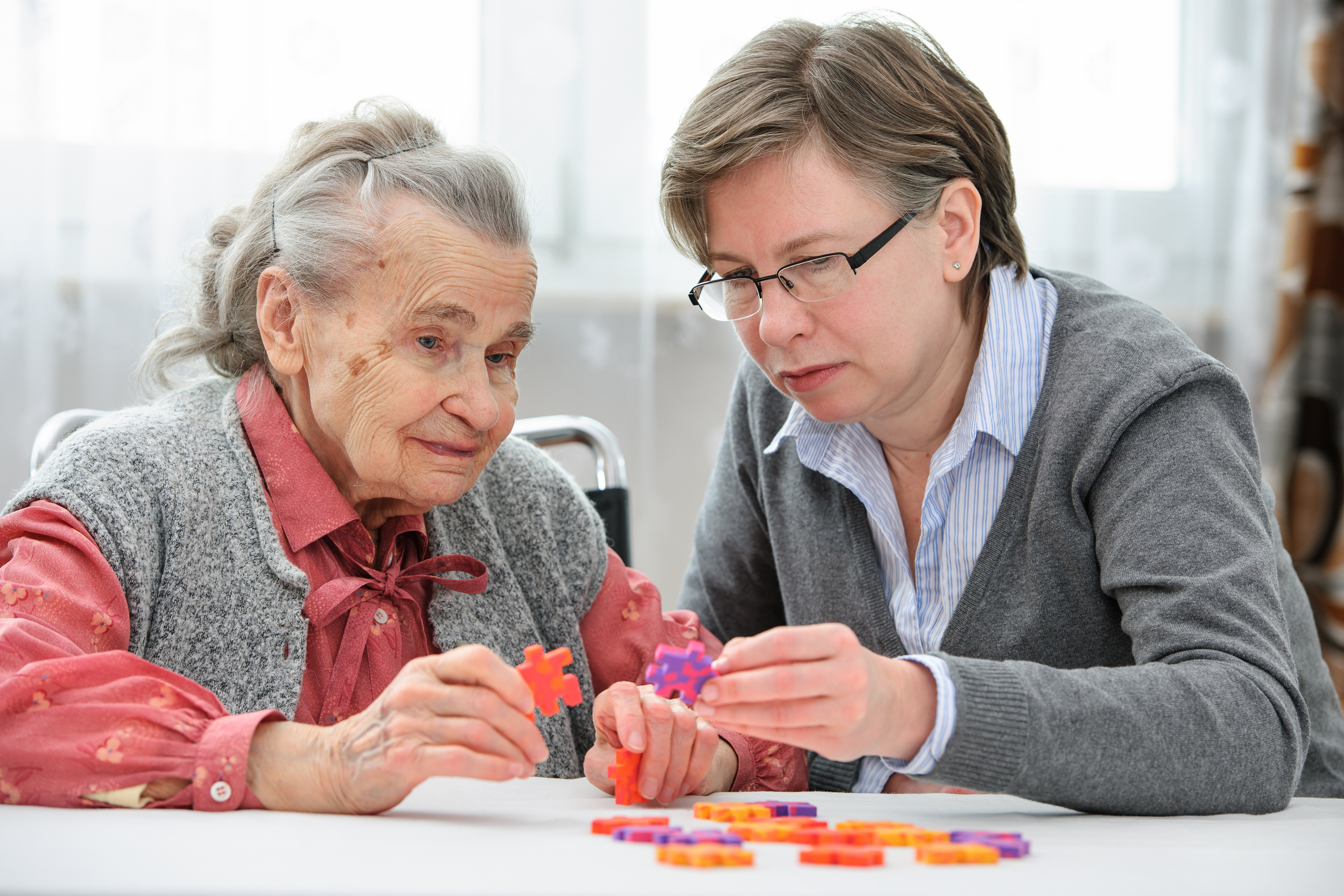Making the twilight zone a little brighter

Bruce Willis, 68, is one of the most prominent cases: in February, the action star’s family announced that he was suffering from a rapidly progressing form of dementia. News like this draws attention to a disease that is often cloaked in silence. Dementia is still rather a taboo subject. Yet the number of new cases in Hesse alone is around 26,000 per year. Nationwide, 1.8 million people are currently living with dementia, and according to all forecasts this number will increase significantly. Together with colleagues from Fulda University of Applied Sciences and Giessen University, social scientist Jutta Träger from h_da has put forward proposals as to how people with dementia can live in their familiar surroundings for as long as possible. The project was funded by the Hessian Ministry for Social Affairs and Integration and Diakonie, the social welfare organisation of Germany’s Protestant churches.
By Christina Janssen, 5.4.2023
When Jutta Träger, a social scientist at h_da, discusses diet or politics with very old family members, she encounters something quite baffling that is directly related to her research: Why do some people stay mentally fit into old age, while others, such as the recent case of action star Bruce Willis, develop severe dementia when they are only in their late 60s? What is it that makes the difference – genes, lifestyle or luck of the draw? “We know a lot about correlations,” she explains, “but little about causalities.” In other words, dementia can have a variety of causes. But one thing is known for certain: the vast majority of patients want to stay in their familiar surroundings for as long as possible – in their own home, in the village or neighbourhood they know, with their family.
Making this possible is what Jutta Träger, Professor for Social Research and Evaluation at Darmstadt University of Applied Sciences, is working to achieve. As a social scientist, she sees dementia not as a medical phenomenon but as a social one. That is why she took a close look, together with colleagues from Fulda University of Applied Sciences and Giessen University, at the social situation of people with dementia – in rural areas, small towns and big cities – within the research project “Dementia in the Neighbourhood”. The sample communities were the Hessian municipalities of Nüsttal and Eiterfeld, the small town of Lollar, and Darmstadt. This “social area analysis” – that’s the technical term – revealed that lots of things are in order, but lots of things still need doing.
Volunteers facilitate participation, but they need more support
“In general, there is a big difference between urban areas and rural ones,” reports Träger. “In rural areas, there are less offers of help. When dementia is diagnosed, we also see an even greater tendency there to conceal it. People often only ask for help when the situation at home starts to escalate.” However, this is something that is also frequently observed in cities. The “ageing society” apparently still has to find good ways for dealing with ageing. Jutta Träger sees promising approaches in Darmstadt: for many years, the Dementia Forum, a non-profit association in the city, has been organising help for patients and relatives. “Darmstadt plays a pioneering role here,” praises Träger.
As part of her research project, Jutta Träger visited neighbourhoods and conducted interviews with those affected in order to identify what is still lacking. “The right mix of help is essential,” she says. “In addition to doctors and nursing staff, this primarily means volunteers.” They are the ones who – alongside the necessary medical care – enable dementia patients to participate in normal life “out there”: by going for walks or spending an afternoon reading or playing games with them, through visits to cafés or museums, or by accompanying them to appointments or to the shops.
While voluntary work has become very diversified lately, almost all volunteers in patient care are women. And they often feel the same as the affected families themselves, that is, left alone. “When caring for patients, volunteers quickly find themselves in situations where they are out of their depth,” reports Träger. “What do I do if the elderly person I’m accompanying suddenly loses their bearings and becomes aggressive?” That is why, she says, above all young volunteers, who are very idealistic at the beginning, need to be better prepared, trained and supervised. “Otherwise, they will bail out as soon as they are exposed to ‘harsh reality’,” says Träger. According to Träger’s survey, most volunteers would appreciate opportunities for further training and somewhere to retreat where they can share their experiences and motivate each other. Discussing things “on the ground” is essential, she says. Beyond that, more recognition is important, according to Träger’s analysis: “Even if it’s just a certificate, an invitation to a dinner or a reception with the mayor.”
Low-threshold offers in individual suburbs
“Not all dementia is the same,” Träger is keen to emphasise, adding that the phase between diagnosis and late-stage dementia varies considerably. “But in any case, dementia is an enormous challenge for everyone involved.” Other studies have shown, she says, that the demands placed on families are sometimes so excessive that relatives turn violent. At the same time, information about the help on offer often fails to reach them. Jutta Träger therefore suggests setting up decentralised contact points in individual suburbs. “Such offers must be low-threshold, clearly visible and easily accessible,” explains Träger. With contact persons on site, to whom trust can be built up step by step: “I don’t walk into the office of a complete stranger and say, ‘It was all too much for me today so I hit my father’.” Träger says that the emotional threshold is often even greater for families with a migration background. “Cultural attitudes towards dementia vary greatly. In many migrant communities, introducing outside help into the family is considered a failure.” A starting point here would be to recruit multipliers from the respective cultural groups.
Jutta Träger and her fellow researchers have summarised the results of their project “Dementia in the Neighbourhood” in a handbook. Whether and how local authorities put the proposals into practice depends on various factors. “Dementia has been pushed into the background by COVID-19, the Ukraine war and the climate crisis,” Träger has noted. Local authorities, which are already running on tight budgets, are hardly in a position to finance new offers, she says. Moreover, to develop the ideas further, there also needs to be more interdisciplinary networking.
“Dementia concerns all of us,” writes Germany’s Federal Government in its National Dementia Strategy. Apparently, it is necessary to point this out explicitly. For everyone involved, bringing dementia out of the twilight zone is crucial, as the family of Bruce Willis, so invincible in his films, has done. Or the writer Arno Geiger: in his bestseller “The Old King in His Exile”, he describes in a warm and humorous way how his father’s dementia brought them emotionally closer together again. This makes the twilight zone a little brighter.
Contributor: Niclas Petrocchi
Translation: Sharon Oranski
Links
Jutta Träger’s homepage: fbgw.h-da.de/fachbereich/personen/professorinnen/prof-dr-jutta-traeger
Book on the project: www.transcript-verlag.de/media/pdf/e6/f3/ca/oa9783839457955.pdf
Dementia Forum Darmstadt: https://www.demenzforum-darmstadt.de/Hilfe_bei_Demenz_Alzheimer
National Dementia Strategy: https://www.nationale-demenzstrategie.de/
Contact
Christina Janssen
Science Editor
University Communication
Tel.: +49.6151.533-60112
Email: christina.janssen@h-da.de
